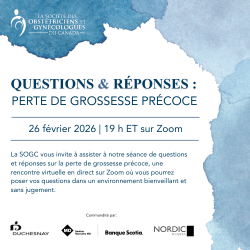Substance use and fertility
The relationship between smoking, alcohol use, and other substance use and fertility is still being studied, but there is evidence that suggests or confirms there are impacts on fertility.
If you’re thinking about becoming pregnant, you might consider exploring ways to reduce or manage your use of tobacco, alcohol, or other substances. Support is available through health care providers and community resources to help you make informed choices that align with your goals.
Caffeine
While drinking large amounts of caffeine may increase the time it takes to become pregnant, there is no evidence that drinking moderate amounts of caffeine (1 to 2 cups of coffee a day) affects fertility.
Alcohol
While the effects of alcohol on fertility are not as well understood as its effects during pregnancy, some research suggests that heavy alcohol use may influence ovulation, menstrual cycles, and the time it takes to become pregnant. The impact of light alcohol use on fertility is less clear and continues to be studied.
If you’re planning a pregnancy, you might consider reducing or pausing alcohol use as one way to support your reproductive health and minimize the chance of alcohol exposure early in pregnancy, before pregnancy is confirmed. There are supportive resources available to help you explore your options.
Smoking
Smoking has been linked to a range of health effects, including potential impacts on fertility and reproductive health. Research suggests that people who smoke may experience longer times to become pregnant and may have lower success rates with fertility treatments like IVF (in vitro fertilization), compared to those who do not smoke. Exposure to second-hand smoke may also carry similar risks.
Nicotine can affect reproductive cells and systems, which may influence future fertility outcomes for both the parent and child. If you’re thinking about becoming pregnant, reducing or quitting smoking, even a few months before trying to conceive, may help support your fertility and overall reproductive goals. Support is available to help you take steps that feel manageable for you.
Cannabis
Cannabis interacts with the body through receptors found in various organs, including the reproductive system, which plays a role in fertility and pregnancy. While research on the direct effects of cannabis on the reproductive system and hormones is still limited, it is noted that cannabis use is more common among individuals experiencing fertility challenges.
Some reports suggest that cannabis use may influence ovulation and could potentially affect fertility. However, there is limited information on how different methods and amounts of cannabis use (such as smoking, vaping, or edibles) specifically impact fertility. There is also evidence that the use of cannabis can lower sperm count and sperm concentration.
If you’re considering pregnancy, you may want to explore strategies to reduce or stop your use of cannabis. Support is available to help you make informed choices that align with your goals.
Opioids
Long-term use of opioids (such as hydromorphone, oxycodone, and fentanyl) can affect a woman’s fertility. Opioids can decrease your production of sex hormones (estrogen, progesterone), leading to irregular periods, impaired ovulation, and reduced fertility or infertility. Long-term users also have a higher risk of early menopause or primary ovarian failure, where the ovaries stop working before age 40. If you use opioids, speak to your health care provider about treatment options that can improve your chances of conceiving and having a healthy baby.
Street drugs
There is very little information available about the relationship between other street drugs and women’s fertility. Street drugs are never safe for use, particularly if you are planning a pregnancy.

Help Support Groundbreaking Research and Education That Saves Lives and Improves Reproductive Health for All Women.
Donate Today

